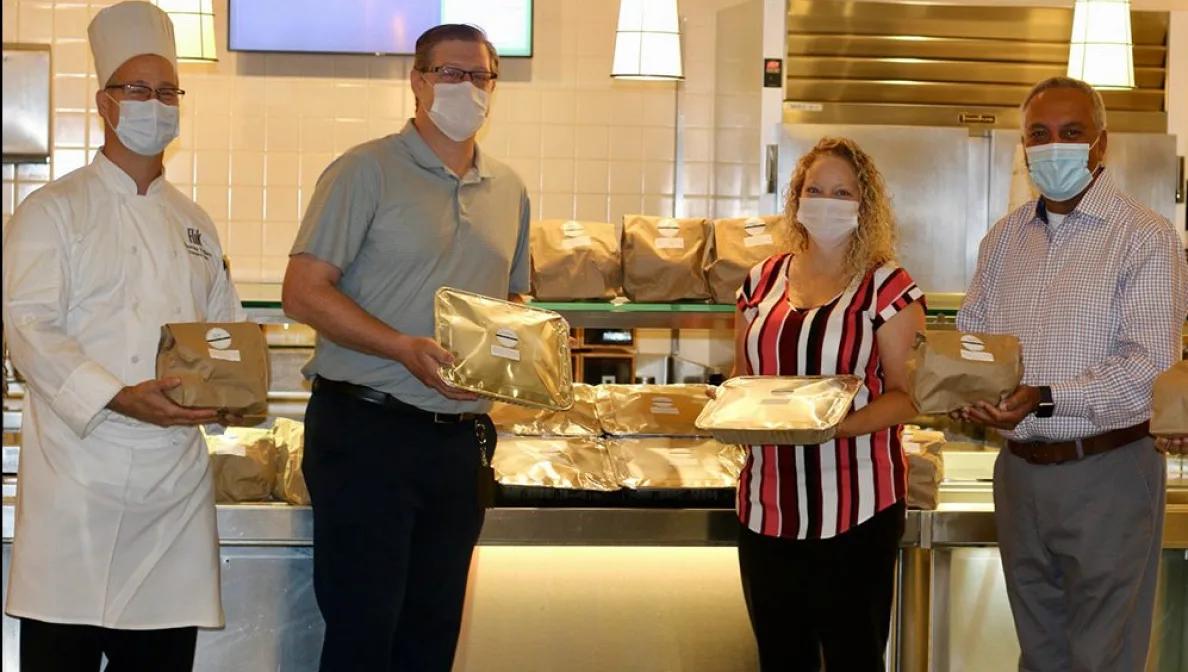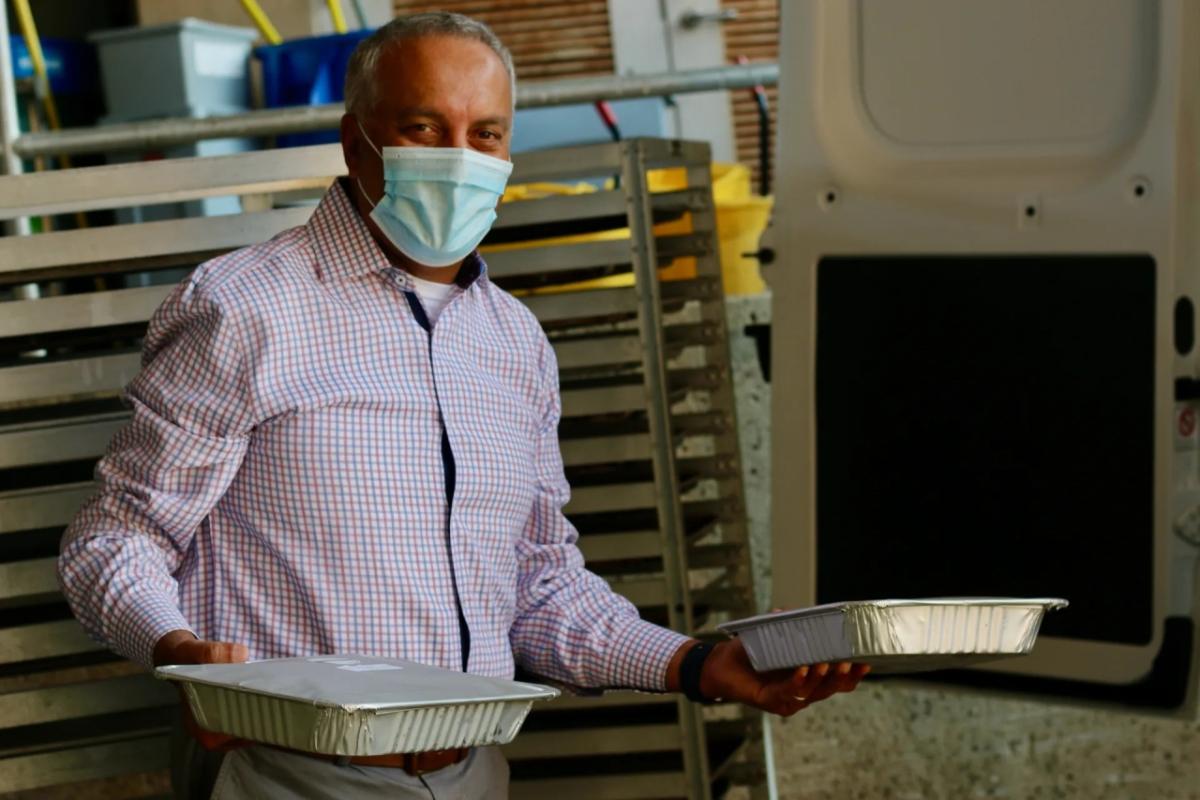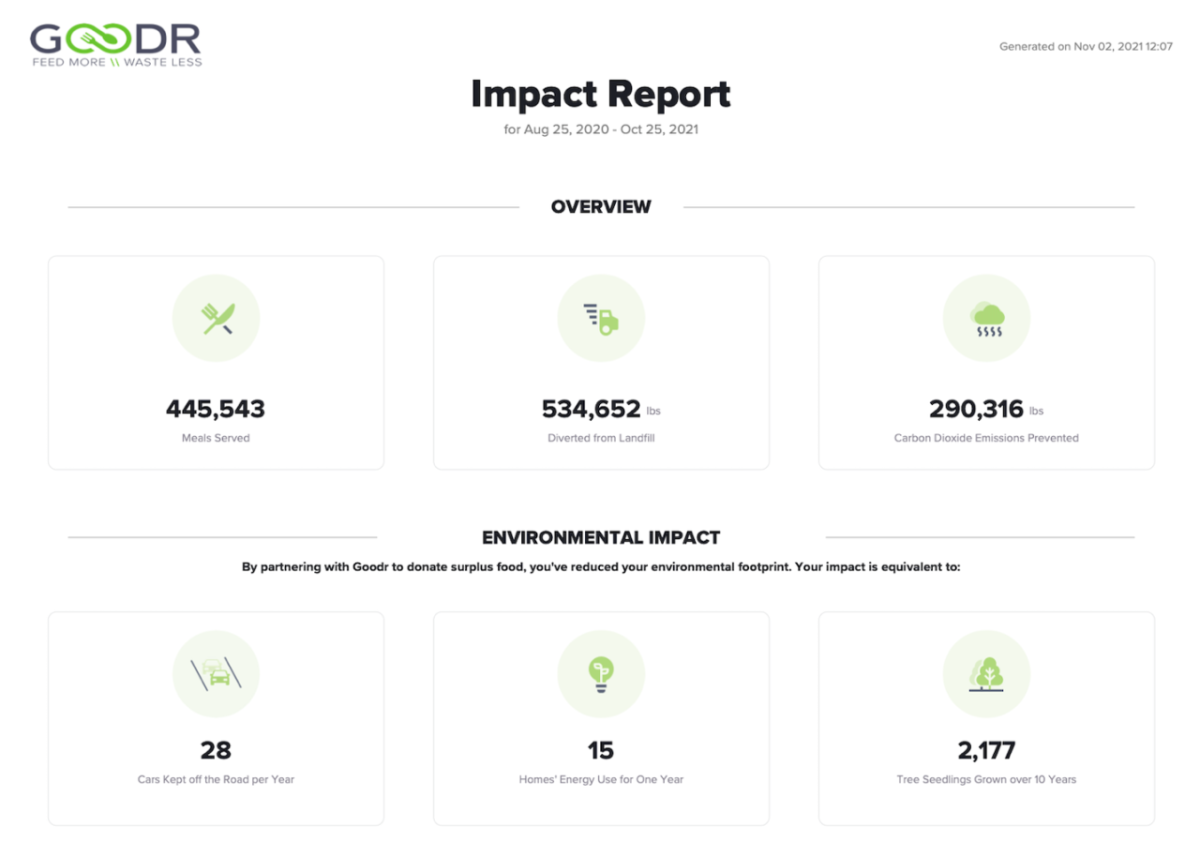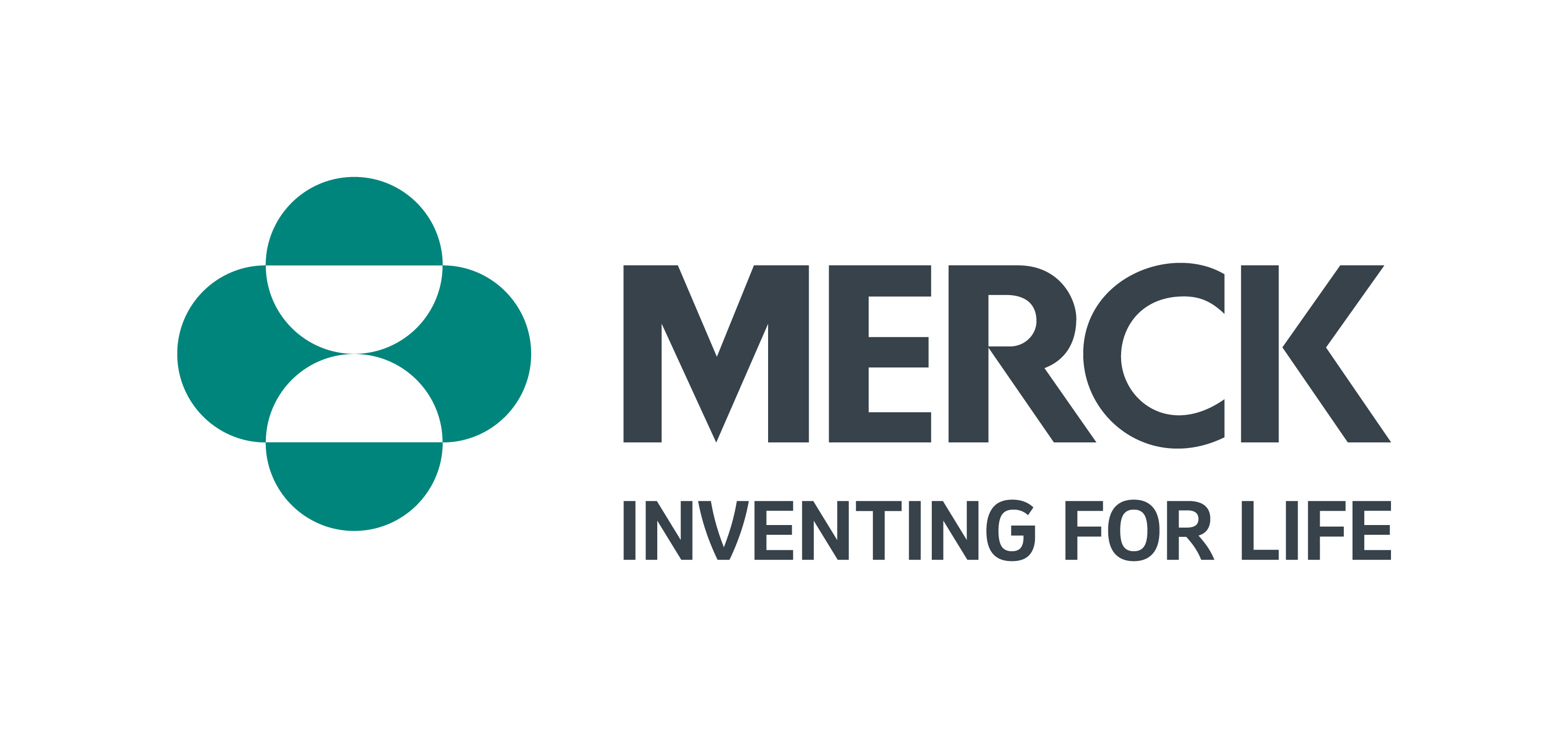When the COVID-19 Pandemic Hit, Our Cafeterias Stepped up To Serve People in Need
A meal distribution program that started at the beginning of the pandemic continues to deliver thousands of meals a week to underserved communities
When the COVID-19 pandemic shuttered our offices in the spring of 2020 and thousands of employees began working remotely, our company found itself with a dilemma: lots of food in the cafeterias, but no one to eat it.
Rather than let it go to waste, Merck and FLIK Hospitality Group, our corporate dining partner, began looking for a way to put the food to use.
“FLIK said, ‘We have employees who are ready to work, and we have inventory,’” said Susanna Webber, senior vice president and chief procurement officer, “‘so what can we do to impact the community, given that food insecurity is an issue?’”
The solution was teaming up with GOODR, an Atlanta-based, woman- and minority-owned company that combats hunger and food waste by distributing excess food to people in need.
Together with GOODR and FLIK, members of our global workplace and enterprise services (GWES) team and global supplier management group (GSMG) developed a plan, and in August 2020 they began distributing meals to underserved communities near our sites in Kenilworth, New Jersey, and West Point, Pennsylvania.
More than a year later, the program is still going strong. Employees are gradually returning to the office, but there’s still room in the kitchens to make meals — and, most crucially, there’s still a need for them.
“A win-win-win”
To date, our company has distributed more than 400,000 meals to 11 nonprofit organizations serving communities in New Jersey and Pennsylvania. And, as a result, more than 500,000 pounds of food waste has been diverted from landfills.
In addition to feeding people in our local communities and curbing food waste, the program has also kept our cafeteria staff employed throughout the pandemic.
“The impact that can be felt from the work that we’re doing with Merck is powerful and priceless,” said GOODR founder and CEO Jasmine Crowe.
“Together, we’re delivering thousands of meals on a weekly basis. We have everyone from homeless shelters to mental health facilities to children and seniors receiving these meals.”
Jasmine Crowe
GOODR founder and CEO
By hiring a diverse supplier to help run the program, our company is furthering our mission to create economic opportunities for underrepresented communities, added Raul Suarez-Rodriguez, director, global economic inclusion & supplier diversity.
“It’s really been a win-win-win on all fronts,” Suarez-Rodriguez said, adding there are plans to continue working with GOODR and possibly expand the program in 2022.
“The need is still there; 2.1 million people are facing hunger in New Jersey and Pennsylvania,” he said. “We aren’t fully back in the office, so we have the space. It’s an opportunity for Merck to continue supporting people as we recover from the pandemic, to continue putting the needs of patients first through prevention.”
“This program is a great example of the ways our company connects with our local communities,” said Paula Alston, vice president, global workplace & enterprise services. “We are committed to doing good for people and the environment, and this effort is making a positive impact on so many levels.”
Learn more about our company’s approach to corporate responsibility and our commitment to environmental, social and governance (ESG) issues.




